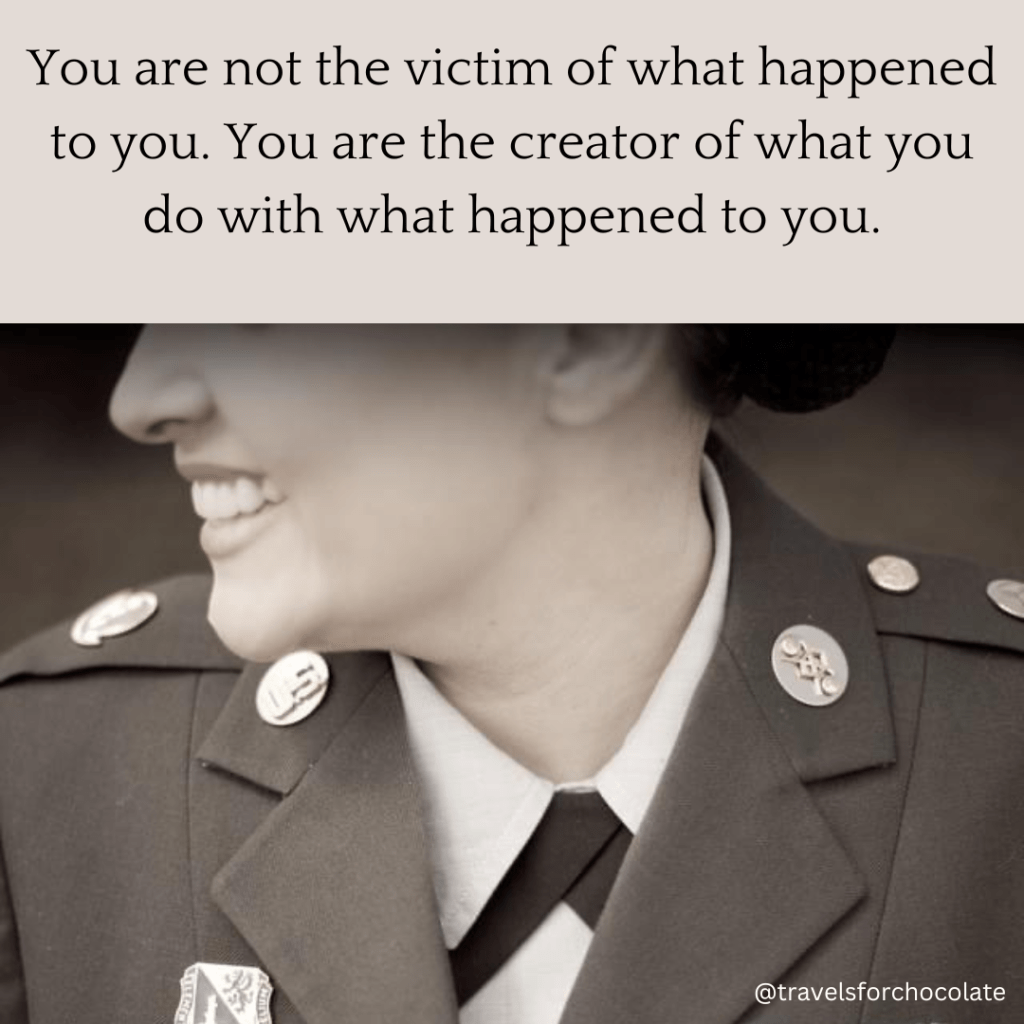
Mel Robbins’ found a quote, “Letting things slide to ‘keep the peace’ only starts a war inside of you,” speaks volumes about the internal conflict and turmoil that arise when we suppress our true feelings, values, or convictions to avoid external conflict or confrontation. This suppression, especially in the context of moral injury, whether stemming from military service or enduring a relationship with a toxic individual, exacerbates the trauma by silencing our voice and minimizing our internal struggles.
My reflection on the military’s NCO Corps highlights a systemic issue where speaking up against wrongdoing is often met with punitive actions, further entrenching the moral injury. This culture of silence not only undermines the integrity and morale of the organization but also leaves individuals in a perpetual state of internal conflict, battling between their moral beliefs and the survival instinct to avoid retribution.
The trauma associated with moral injury, particularly in environments that discourage open dialogue and punish dissent, can deeply affect one’s ability to advocate for oneself. It reinforces a cycle of silence and suffering, making it challenging to address and heal from the underlying moral conflict.
My insight into the importance of discussing these issues is crucial. Conversations about moral injury, its impact, and the systems that perpetuate it are vital for healing and change. They help validate the experiences of those suffering in silence, offering them a sense of solidarity and understanding. Moreover, these discussions can pave the way for creating more supportive and ethical environments where individuals feel empowered to speak up without fear of retribution.
Healing from moral injury involves recognizing the depth of the internal conflict, understanding that the impulse to “keep the peace” at the expense of one’s moral integrity can lead to greater internal strife, and finding safe spaces to express and process these conflicts. It’s about rebuilding trust in oneself and in systems that may have failed to protect or support ethical stances. Support from peers, therapy, and community resources can offer pathways to healing, allowing individuals to reconcile with their past actions or inactions and to forge a more peaceful internal existence.
Let this be a reminder that while the journey towards healing is deeply personal, no one has to walk it alone.
